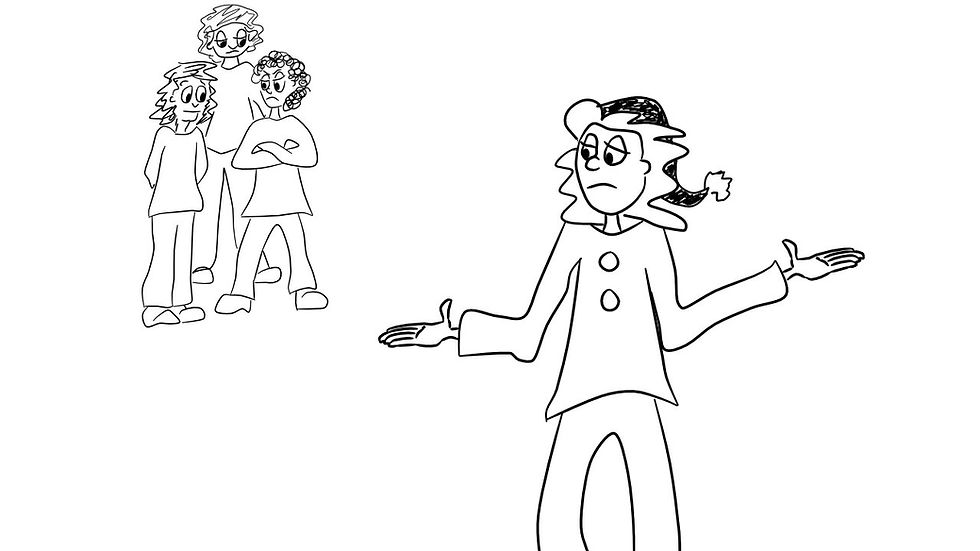How Kids Can Push Back When Faced with Social Isolation
- Wenna

- Feb 1, 2019
- 3 min read

One of the most common and ugly social scenarios I see at the tween stage is the use of isolation as a form of social control. One person (sometimes more than one) is targeted as a scapegoat by the group and is ignored, left out, and often the subject of rumours and online harassment. This seems to be more prevalent in girl friendship groups, but it can certainly happen with boys and even mixed groups. If this is feeling really familiar, let me plug a useful book Queen Bees and Wannabees by Rosalind Wiseman.
It is worth noting that in an isolation situation, the majority of ‘players’ are not either the direct target or the instigator. They become involved as a peer pressure ‘helper’. While kids often feel like they don’t have choices, this position offers them more control than they realize. They just need to take time to break down what is happening.
Breaking it Down
A couple of weeks ago, I was working with one of my groups on identifying different ways people try to control one another. This is what they came up with:
Persuasive reasoning/logic
Setting an example
Bribery
Threat/blackmail
Isolation/ignoring
Peer pressure based on multiple versus one, or social status
Next, we listed some of the more common and problematic situations where they have either used or had one of the aforementioned strategies used on them.
Being told by a friend not to be friends with someone
The larger group has decided to do something and you will be the odd one out if you don’t go along
Overtly or implicitly threatened that you will either share a consequence/be blamed or become the next target if you don’t do something
Passing a rumour that you have either started, or embellished
Passing on an unsubstantiated rumour that you heard
Never underestimate the power of simply breaking something down into pieces and looking at it. Having 2 lists meant that brainstorming strategies were a lot easier to tackle than we initially thought.
Pushing Back
Planning and practicing strategies to deal with tough social situations, when they have a bit of emotional distance is so important. They all agreed that the ideal is to stand by what you truly believe. Be direct and logical. For a lot of kids, however, that this is not always realistic. Social status means a lot to them, and ‘pushing back’ risks their social rank. Here is what they came up with for managing a friend who gives an ultimatum like “You can’t be friends with _ if you want to be friends with me”
Call their bluff “I am not going to dump my friend because you want me to. I’m sorry if this means we can’t be friends right now”
They may retaliate
They may back down
Find a way to buy time so you can think and not just react emotionally or even talk it through with a trusted adult or uninvolved party
Say you need to think about it
Make an excuse to get away temporarily (cough, need a drink, important text, headache)
Distract friend from the emotional charge by making a joke and pretending that you don’t think they are serious
Try to prompt your child to look at various options/strategies for responding to a challenging situation. Help them work to think through the possible results of each option when they are not in the emotional heat of the situation. This will help them regain some of the control that peer pressure seeks to remove.




Comments